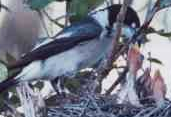Year Of The Bat - Bats Are Our Allies
 Flying Foxes and microbats are a much misunderstood animal and sadly much feared due to misinformation and negative stereotyping in legends and myths.
Flying Foxes and microbats are a much misunderstood animal and sadly much feared due to misinformation and negative stereotyping in legends and myths.
In reality, bats as they are commonly called (which refers flying foxes and microbats) are the world's only flying mammals and are allies of nature, being the the only pollinators of many species of trees and plants around the world. Without them the these trees would cease to spread and many other species would also lose their habitat.! Many species of bats are close to extinction due to loss of habitat and disease.
2011-2012 is the Year of The Bat. This is an international campaign to help educate the world about the world's only flying mammals. The campaign will also promote conservation and research efforts around the globe. The campaign is supported by the United Nations Environment Programme, the Convention and Conservation of Migratory Species, EUROBATS and many partner organisations around the world. See http://www.yearofthebat.org/ for more details.
Dr Merlin D. Tuttle is a leading conservationist who has studied bats for over 50 years. He is also an  award winning photographer and the founder of Bat Conservation International (BCI), which is an organisation dedicated to conservation, research and education of bats. Merlin's Bats, Angel of Bats and The Secret World of Bats are some of his well known films that have been aired in over 100 countries.
award winning photographer and the founder of Bat Conservation International (BCI), which is an organisation dedicated to conservation, research and education of bats. Merlin's Bats, Angel of Bats and The Secret World of Bats are some of his well known films that have been aired in over 100 countries.
In the article below first published on the Bank Of Natural Capital Dr Tuttle describes the unique role played by bats (please note: the copyright for all the photographs in this article belong to Dr Merlin Tuttle, Bat Conservation International, www.batcon.org).
Bat Pollinators: Tequila and The Tree of LIfe
Bats: Nature's Natural Pesticide
From Terror to Tourist Attraction
**********
Bats as Invaluable Allies
by Dr Merlin D. Tuttle
(Republished with kind permission of Bank of Natural Capital)

(Copyright for all the photographs in this article belong to Dr Merlin Tuttle, Bat Conservation International, www.batcon.org)
Were you aware that bats are key pollinators in many parts of the world? Pollination is a vital ecosystem service without which many of our key industries such as agriculture and pharmaceuticals would collapse or incur heavy costs for artificial substitution. TEEB has found that in some estimates, over 75% of the worlds crop plants, as well as many plants that are source species for pharmaceuticals, rely on pollination by animal vectors.1
Furthermore, for 87 out of 115 leading global crops (representing up to 35% of the global food supply), fruit or seed numbers or quality were increased through animal pollination.2 Bats also provide a wide range of ecosystem services which benefit mankind from insect deterrent to bat guano fertilizer.*

 del.icio.us
del.icio.us Digg
Digg Facebook
Facebook Google
Google Google+
Google+ LinkedIn
LinkedIn MySpace
MySpace Ping This!
Ping This! SlashDot
SlashDot StumbleUpon
StumbleUpon Twitter
Twitter Yahoo
Yahoo



